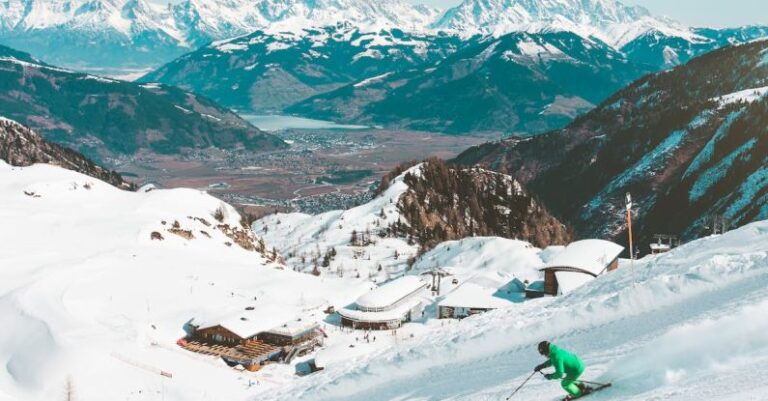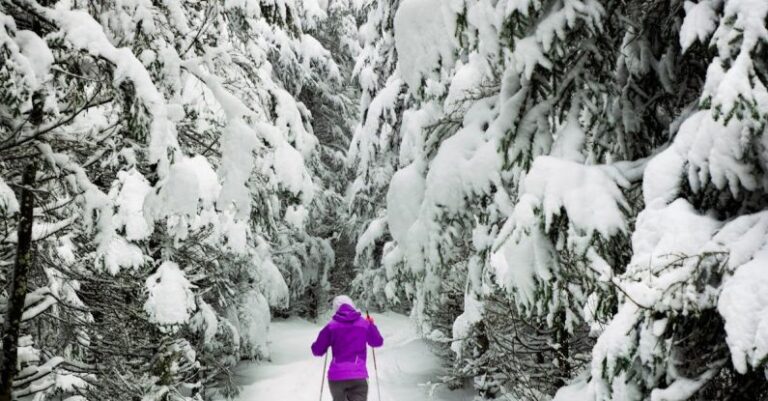
Skiing is an exhilarating winter sport that offers the perfect combination of adrenaline rush and scenic beauty. However, it also comes with its fair share of risks. To ensure a safe and enjoyable skiing experience, it’s crucial to be well-prepared and mindful of safety precautions. Here are some essential tips on how to stay safe while hitting the slopes.
Stay Informed About Weather Conditions
Before heading out to ski, always check the weather forecast for the day. Unfavorable weather conditions such as heavy snowfall, strong winds, or icy surfaces can significantly impact your safety on the slopes. Be prepared for any changes in weather and plan your skiing day accordingly. Additionally, stay informed about any avalanche warnings in the area and avoid skiing in high-risk zones.
Wear Proper Gear
One of the most important aspects of skiing safely is wearing the right gear. Invest in high-quality ski equipment, including a well-fitted helmet, goggles, gloves, and appropriate layers of clothing. Make sure that your gear is in good condition and provides adequate protection against the cold and potential injuries. Remember, safety should always come first when it comes to choosing your skiing gear.
Follow Trail Markings and Signage
When skiing, always pay attention to trail markings and signage on the slopes. These markers provide valuable information about the difficulty level of the runs, potential hazards, and designated ski areas. Stay on trails that match your skill level and avoid venturing into restricted or closed-off areas. Respecting trail markings not only keeps you safe but also helps maintain order and safety on the slopes for everyone.
Stay Hydrated and Energized
Skiing is a physically demanding activity that requires a lot of energy and stamina. To stay safe on the slopes, make sure to stay hydrated and fueled throughout the day. Pack water and high-energy snacks to keep yourself hydrated and maintain your energy levels. Skiing on an empty stomach or being dehydrated can lead to fatigue and impaired judgment, increasing the risk of accidents.
Practice Proper Technique
Having good skiing technique is essential for staying safe on the slopes. If you’re a beginner, consider taking lessons from a certified instructor to learn the basics of skiing and improve your skills. Proper technique not only enhances your performance but also reduces the likelihood of falls and injuries. Remember to always ski in control, maintain a safe speed, and be aware of your surroundings to avoid collisions with other skiers.
Be Prepared for Emergencies
Despite taking all necessary precautions, accidents can still happen while skiing. Be prepared for emergencies by carrying a fully charged cell phone, a trail map, and basic first aid supplies in your backpack. Familiarize yourself with the ski resort’s emergency procedures and know how to contact ski patrol in case of an accident or injury. Being prepared can make a significant difference in how quickly help can reach you in case of an emergency.
Stay Aware of Your Surroundings
When skiing, it’s essential to stay aware of your surroundings at all times. Keep an eye out for other skiers, obstacles on the slopes, and changing terrain conditions. Avoid distractions such as listening to loud music or using your phone while skiing, as these can impair your concentration and reaction time. By staying alert and focused, you can react quickly to any potential dangers and avoid accidents.
Conclusion: Enjoy a Safe Skiing Experience
Skiing is a thrilling and rewarding winter activity that offers a unique way to experience the great outdoors. By following these safety tips and staying mindful of potential risks, you can enjoy a safe and memorable skiing experience. Remember to stay informed, wear proper gear, follow trail markings, practice good technique, be prepared for emergencies, and stay aware of your surroundings. With the right precautions and a safety-first mindset, you can make the most of your time on the slopes while staying safe and injury-free. So, gear up, hit the slopes, and have a fantastic skiing adventure!





